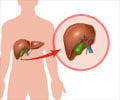It is well-known that patients who receive kidney transplants must take lifelong medications.

A new analysis has found that transplant patients can safely minimize or avoid using calcineurin inhibitors. The study, conducted by Richard Borrows, MD and his colleagues at the Renal Institute of Birmingham, in England, appears in an upcoming issue of the Journal of the American Society Nephrology (JASN), a publication of the American Society of Nephrology.
The investigators examined dozens of studies conducted between1966 and 2010 that compared different treatments following kidney transplantation. When they weighed the risks and benefits of avoiding or reducing calcineurin inhibitors immediately after kidney transplantation, the researchers found that the strategy improves kidney function without causing rejection in the short-to-medium period after transplantation. In many cases, patients took newer immunosuppressive drugs that are less toxic to the kidneys.
Approximately 94% of kidney transplant recipients take calcineurin inhibitors after being discharged from the hospital. "This study suggests that after 30 years of using calcineurin inhibitors, it may now be possible to undertake safe and effective transplantation without these drugs, at least in some groups of patients," said Dr. Borrows.
Source-Eurekalert














